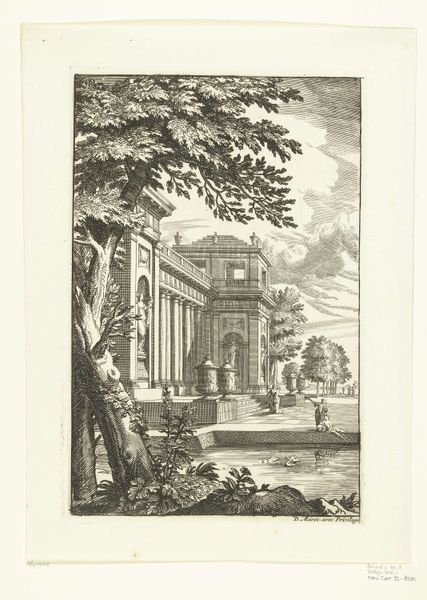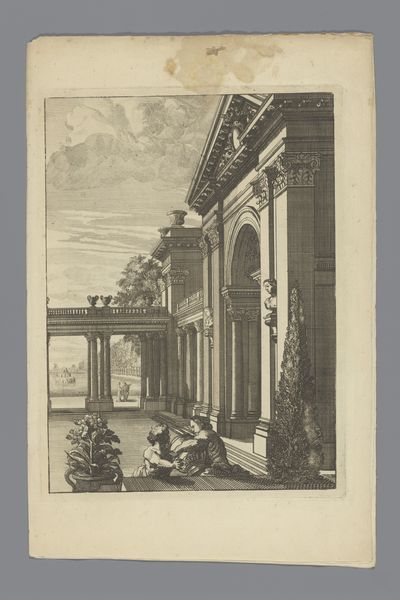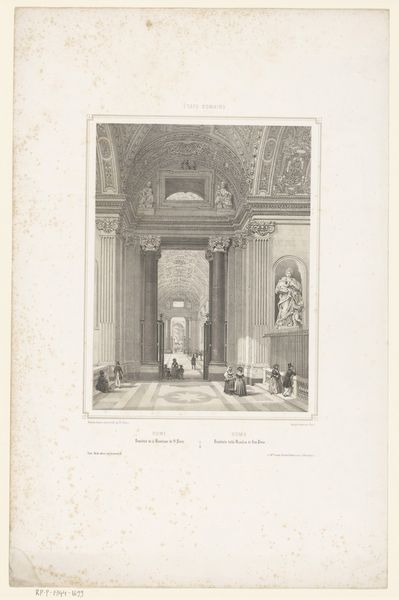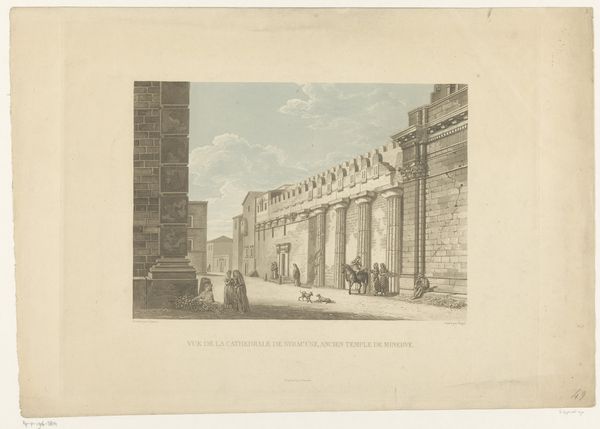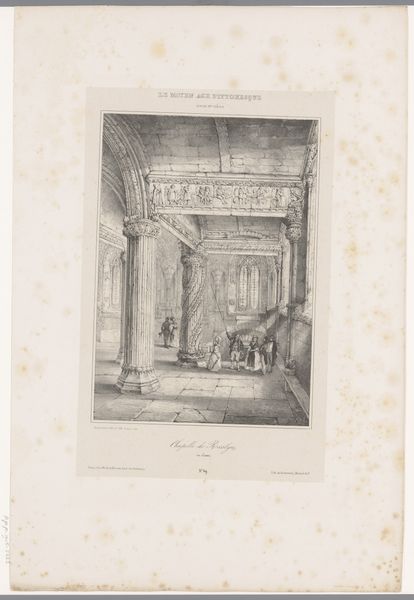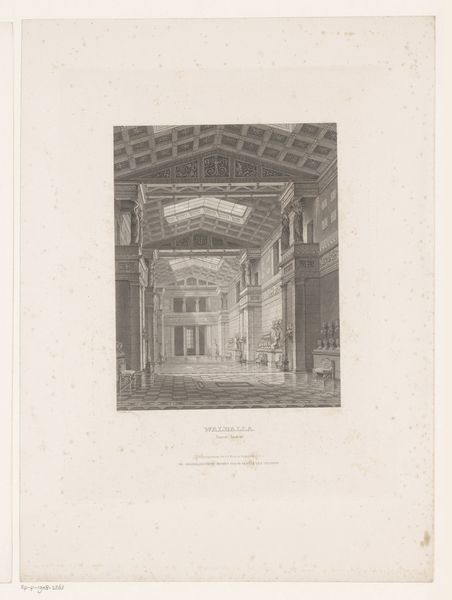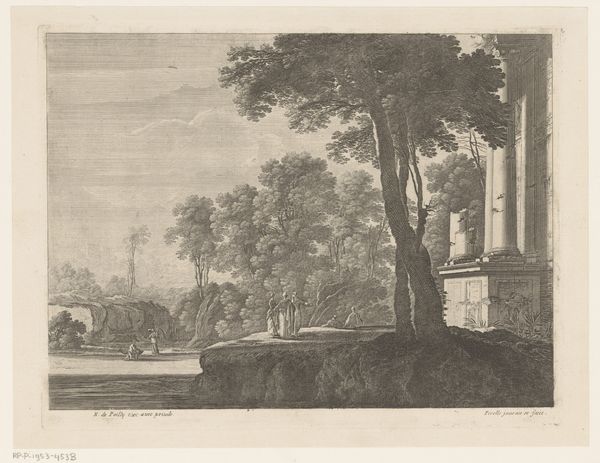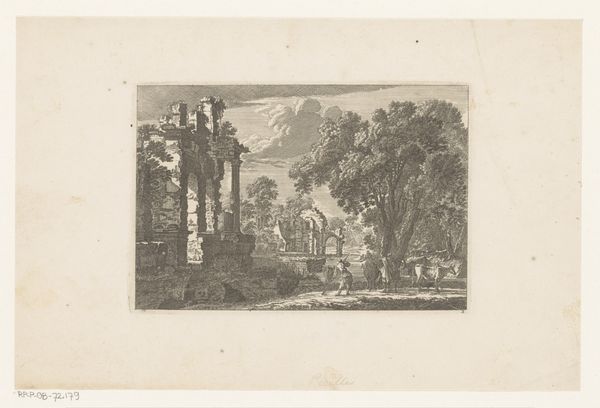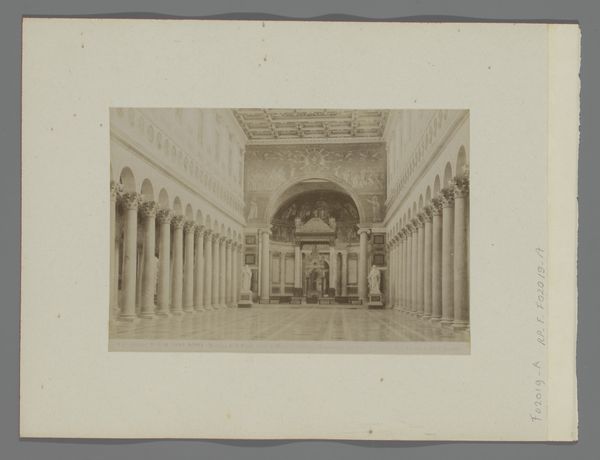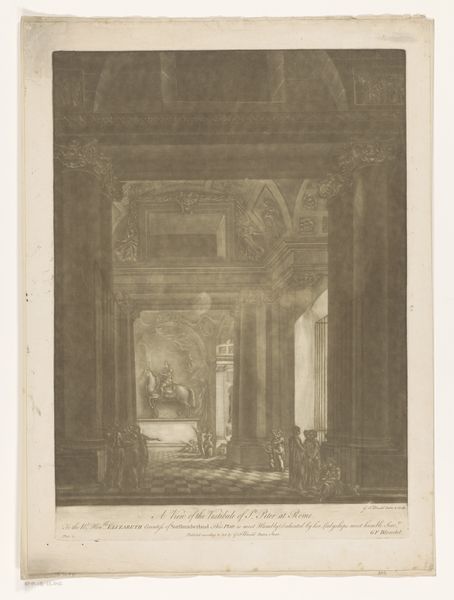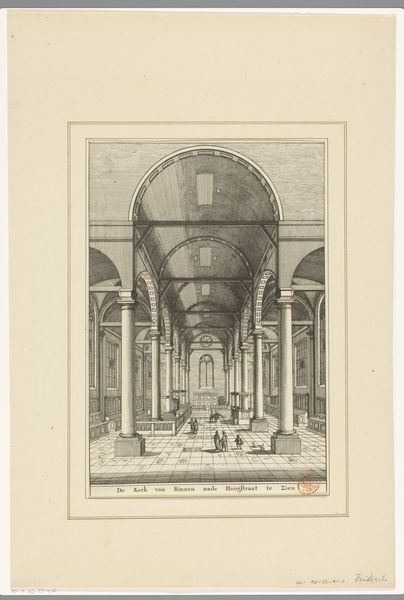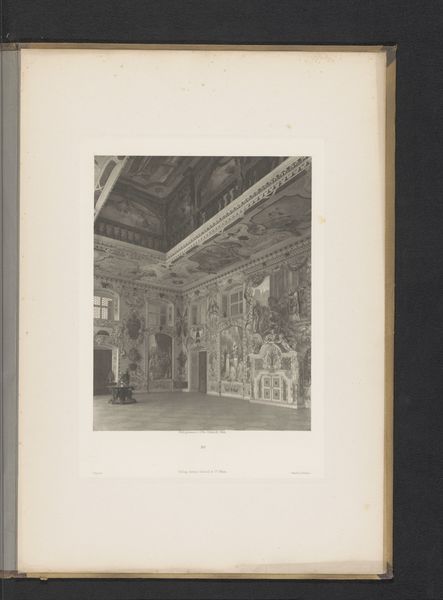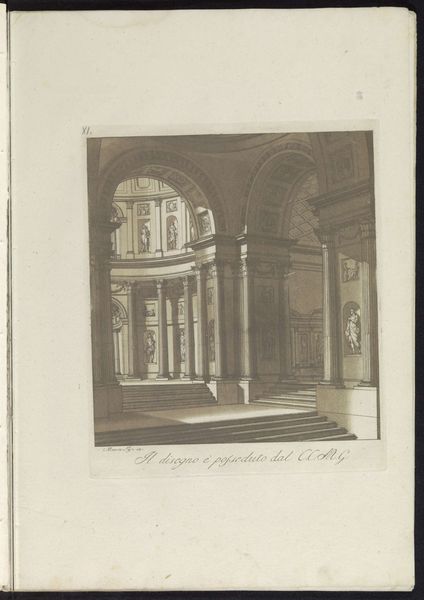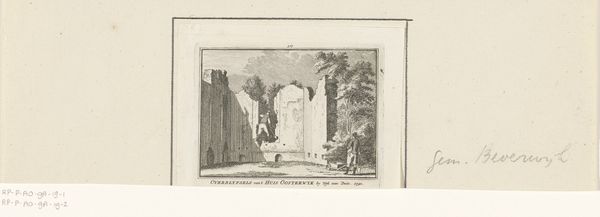
Flanerende mensen en tekenaars bij bordes van een Italiaans paleis 1818 - 1826
0:00
0:00
drawing, print, engraving
#
drawing
#
neoclacissism
# print
#
landscape
#
academic-art
#
engraving
Dimensions: height 545 mm, width 358 mm
Copyright: Rijks Museum: Open Domain
Jean Lubin Vauzelle created this print of an Italian palace using etching and aquatint, two techniques that allow for great detail and tonal range. Etching involves coating a metal plate with wax, drawing through the wax to expose the metal, and then submerging the plate in acid, which bites into the exposed lines. Aquatint, on the other hand, creates broad areas of tone by using a porous ground, like resin, to create a texture that resists the acid. Look closely, and you’ll see how Vauzelle has used these techniques to render the stone architecture, the billowing clouds, and the figures. The architecture of the palace gives a sense of grandeur with its columns and ornate details, typical of high society. But consider the labor involved in constructing such a building. The print, in its own way, reflects the economic and social disparities of the time, the elites commissioning prints like this to celebrate their status. It’s a reminder that even seemingly straightforward images are deeply embedded in the social dynamics of their time.
Comments
No comments
Be the first to comment and join the conversation on the ultimate creative platform.
